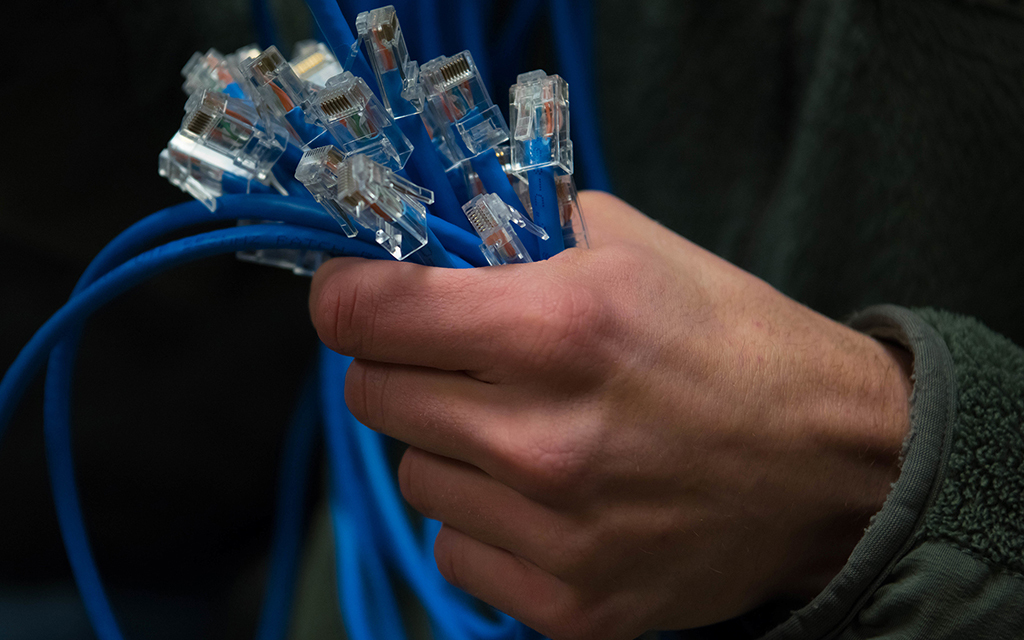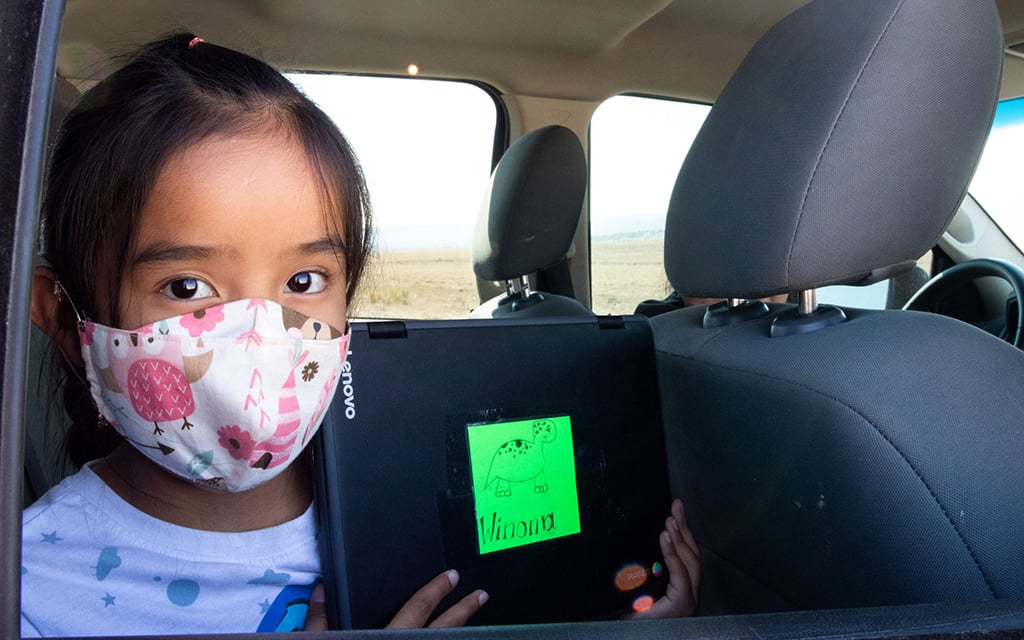
Arizona officials said they have been meeting with local and tribal officials and planning since December for how best to use funding from the federal Broadband, Equity, Access and Deployment program. Arizona will get just under $1 billion from the program, which aims to improve broadband access in rural and underserved areas. (Photo by Airman 1st Class Jesse Jenny/U.S. Air Force)
WASHINGTON – Arizona will get just under $1 billion in federal funding for high-speed internet access improvement, part of more than $42.45 billion released Monday by the Commerce Department.
Arizona’s $993.1 million share of the Broadband Equity, Access and Deployment – or BEAD – program will be managed by the Arizona Commerce Authority, which has been planning since December how it will allocate what Gov. Katie Hobbs called the “historic broadband investment.”
“Access to reliable internet is critical to creating equal opportunities for all Arizonans,” Hobbs said in a statement Monday. “For too long, millions of Arizonans have lacked this access, preventing them from attaining good-paying jobs, quality education and even basic health care services.”
The program, which was funded through the $1 trillion Bipartisan Infrastructure Law passed in 2021, places specific focus on fostering rural broadband connectivity. Every state got at least $100 million and every territory got at least $25 million, with additional funding based on the state’s or territory’s share of U.S. locations unserved by broadband as well as high-cost unserved locations.
Texas will get the most, at $3.3 billion, followed by California at $1.9 billion. Delaware got the least among states, with $107.7 million. Funding for territories ranged from $100.7 million for the District of Columbia to $27.1 million for the U.S. Virgin Islands.
“States can now plan their internet access grant programs with confidence and engage with communities to ensure this money is spent where it is most needed,” Assistant Commerce Secretary Alan Davidson said at a White House event to announce the funding.
Except in the most-distressed areas, states and territories will have to provide a 25% match for any BEAD funding they use. Arizona’s fiscal 2024 budget includes $23 million in a Rural Broadband Accelerated Match fund to help local government’s make that match.
Arizona Commerce Authority officials were not immediately available for comment Monday. But the agency says on its website that it plans to integrate BEAD funds with its current digital equity plan, which seeks to ensure communities have the technological capacity and skills to participate in the digital landscape.
Arizona is developing a five-year plan with input from Arizona internet service providers, local governments, county supervisors and tribal officials. Roundtable discussions on the plan will continue in the coming months.
“This money will provide opportunities for cities and towns to support broadband availability and adoption in their communities that will help close the digital divide and ensure rural, suburban, and urban communities have equal opportunity to access and afford high-speed internet,” said René Guillen, deputy director of the League of Arizona Cities and Towns, in the statement from Hobbs’ office.
Hobbs said the Commerce Authority submitted 60,000 successful challenges to the Federal Communications Commission’s map of broadband service to “ensure all unserved and underserved Arizona households were accounted for in the BEAD formula funding.”
Arizona was specifically cited during the White House event by Commerce Secretary Gina Raimondo, who mentioned the number of tribal families in the state whose children could not attend school during the pandemic for a lack of internet access. Despite that, none of the funds in the BEAD program will go directly to tribal governments.
“This funding was specifically allowed for the states,” said Justin Ahasteen, director of the Navajo Nation Washington Office. “Tribal entities could technically receive a subgrant but the states would have to provide that to the tribes.”
Ahasteen noted that tribes received funding directly under the Tribal Broadband Connectivity Program, and that it will be “interesting to see where the partnerships with the states come into play with this specific funding.”
Navajo Council Speaker Crystalyne Curley welcomed the additional funding, which she said is “becoming a greater need throughout all tribal communities in … Arizona.”
“The funding will be very beneficial for first responders, students, businesses and many others on the Navajo Nation,” Curley said in the statement from Hobbs’ office. “We look forward to working with Gov. Hobbs and the state agencies to ensure that tribal nations maximize the benefits of NTIA funding.”
They have 180 days from June 30 to submit initial proposals for BEAD funding to the National Telecommunications and Information Administration, which is expected to approve projects on a rolling basis.

